Clutha Inquiry: Police inspector describes helicopter's fuel warning 'issues'
- Published
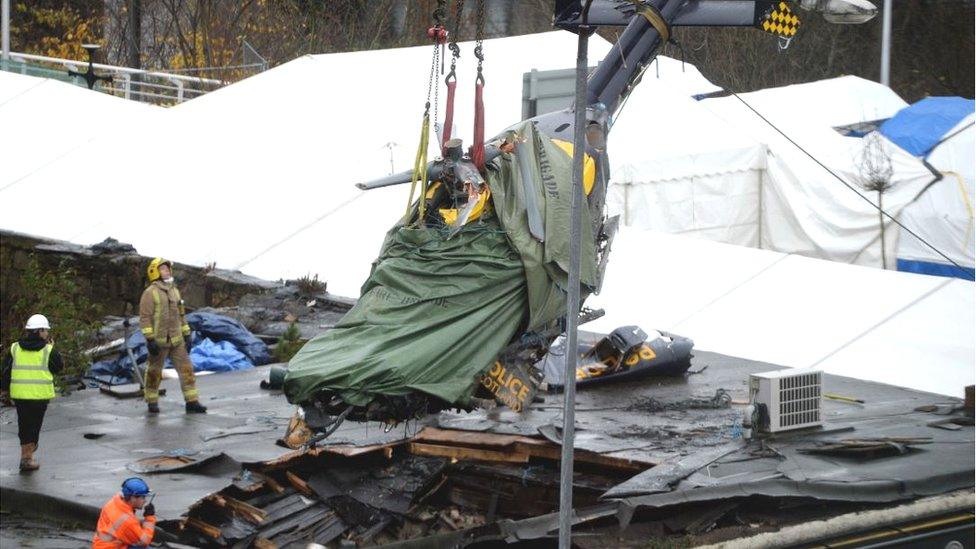
A Bond Air Services engineer shared concerns about the firm's helicopter maintenance in a handover the day before the crash
A police inspector has told the Clutha helicopter crash inquiry about a history of problems with the aircraft's fuel indicators.
Insp Nicholas Whyte also speculated that the accident may have happened as the fuel warning lights did not come on in the cockpit.
The officer was still in a flying role at the time and had flown in a police helicopter a week before it crashed.
Ten people died in the tragedy in Glasgow city centre in November 2013.
On the day of the crash, Insp White worked a day shift in an administrative role.
Sean Smith QC, for the Crown, asked the witness: "In your experience, prior to the accident, were you aware of any particular problems with the fuel indicators on the CAD (Caution and Advisory Display)?"
Team effort
Insp Whyte replied: "Yes."
He added: "On one particular occasion in 2012 there had been an issue with the low fuel warning lights, I believe, and this took two days to repair or diagnose and rectify."
The witness, who is now an inspector with the air support unit, went on to describe the work he understood had been carried out.
He said: "I believe during that rectification a number of electronic parts had been repaired within the aircraft to try and diagnose the fault and the fuel issue."
Insp Whyte later agreed with Donald Findlay QC, representing victim Robert Jenkins' partner Mary Kavanagh, that what happened during a flight was a "team effort where the pilot has ultimate responsibility".
Mr Findlay asked him how he would have responded had he been in the helicopter during the fateful flight when the red low fuel warning light came on.
Insp Whyte said the pilot would not have been able to pacify him and he would have told him: "You need to land."
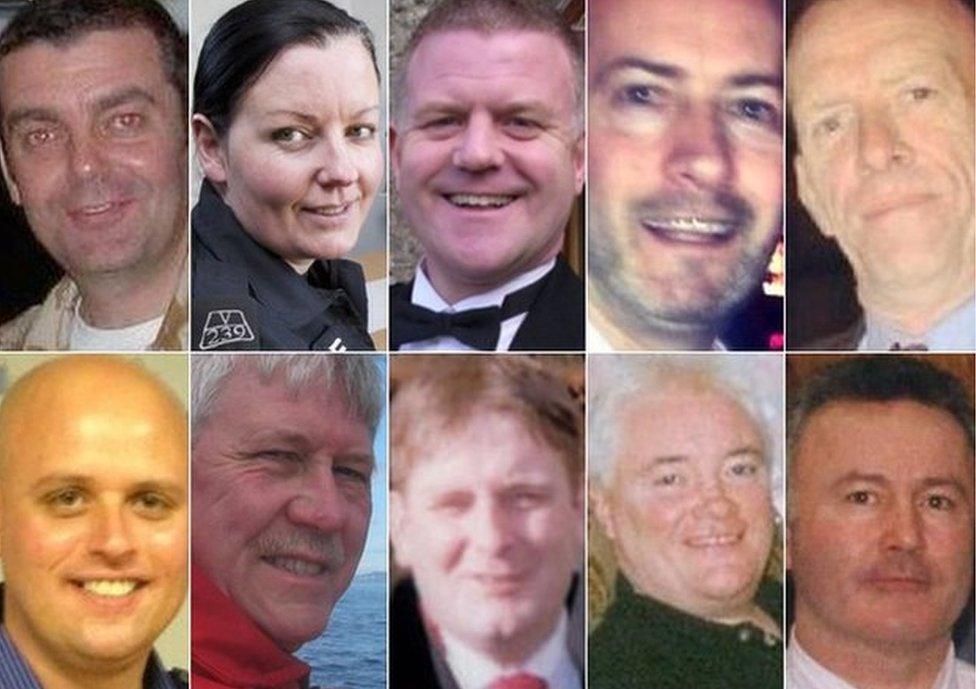
Top: L to R, David Traill, PC Kirsty Nelis, PC Tony Collins, Gary Arthur, Samuel McGhee. Bottom: L to R, Colin Gibson, Robert Jenkins, Mark O'Prey, John McGarrigle, Joe Cusker
The QC again asked the officer to put himself on the helicopter. He added: "Take us there. What is going on?"
Insp Whyte replied: "It does not make sense that that flight would continue for the length of time that it did given the evidence we have over the red warnings."
"It does not make sense that those individuals that I knew continued with that flight. It does not make sense."
Asked why the crew did not raise the alarm if, hypothetically, pilot David Traill was dismissive of their concerns, Insp Whyte replied: "The only theory that I can present is that they actually were not presented with the warnings that we saw."
Mr Findlay sought clarification from the witness that he was suggesting no fuel warning lights were illuminated in the cockpit before the police helicopter crashed into the roof of The Clutha.

Clutha inquiry: The evidence so far

Insp Whyte told the court: "I can think of no reason that they did not land. The only suggestion that I can make is that those warnings did not appear as we think they did appear."
The witness agreed with Mr Findlay that it would be "inexplicable" for the crew to ignore fuel warnings.
The QC asked how they might have responded if the pilot had said: "I know what I am doing."
Insp Whyte responded: "They would not have accepted that."
'Unprofessional'
The inquiry previously heard an engineer described the level of maintenance carried out on helicopters as "an accident waiting to happen".
Aircraft engineer Anthony Dowsing criticised Paul Booth's comments, which were contained in an end-of-shift report submitted to Bond Air Services the day before the crash".
Mr Dowsing said: "I do recall Paul's comment, which did raise concern."
The witness added: "I know Paul. Putting 'an accident waiting to happen' on a handover, I did not feel, was very professional.
"At the time there were no concerns about how maintenance was being carried out on the fleet. He (Paul Booth) should not really be putting that down in writing. He should be speaking to a manager first."
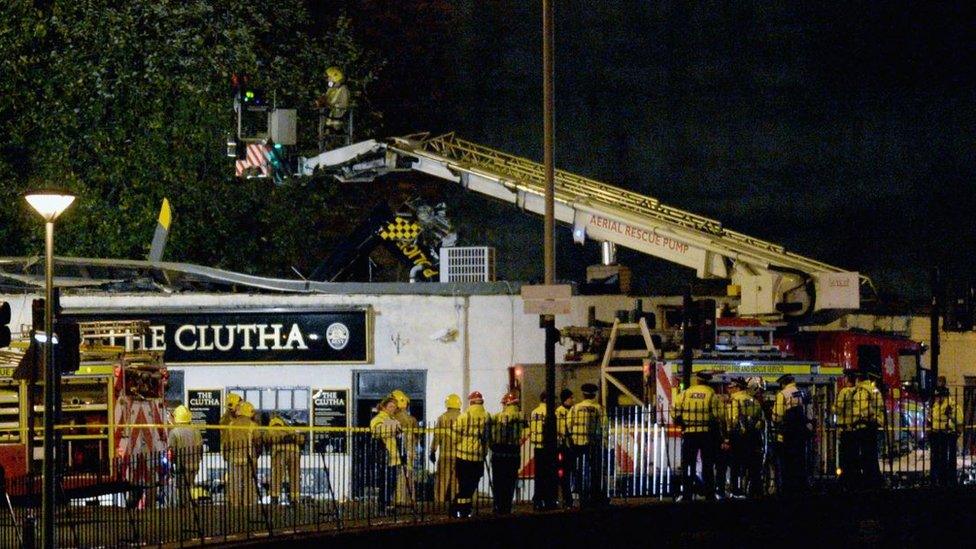
The accident happened on 29 November 2013
The inquiry began with a minute's silence to honour the victims of the 2013 tragedy.
On the third day, a joint minute was read out which agreed the times and causes of death.
Pilot David Traill, 51; PC Tony Collins, 43; and PC Kirsty Nelis, 36, lost their lives in the crash along with seven customers who were in the bar on Stockwell Street.
They were Gary Arthur, 48; Joe Cusker, 59; Colin Gibson, 33; Robert Jenkins, 61; John McGarrigle, 58; Samuel McGhee, 56; and Mark O'Prey, 44.
The inquiry, which is being held at Hampden Park in Glasgow, continues.
- Published1 May 2019

- Published18 April 2019
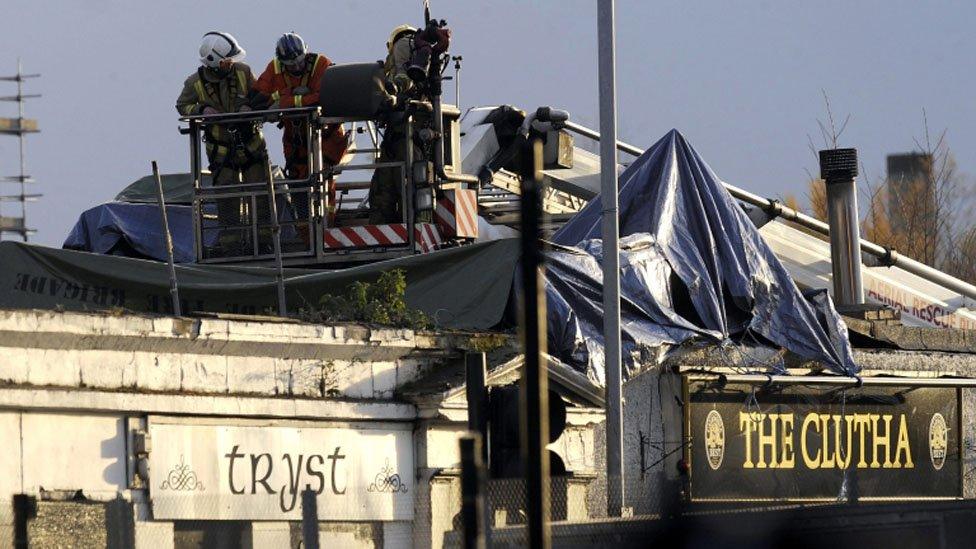
- Published17 April 2019

- Published10 April 2019
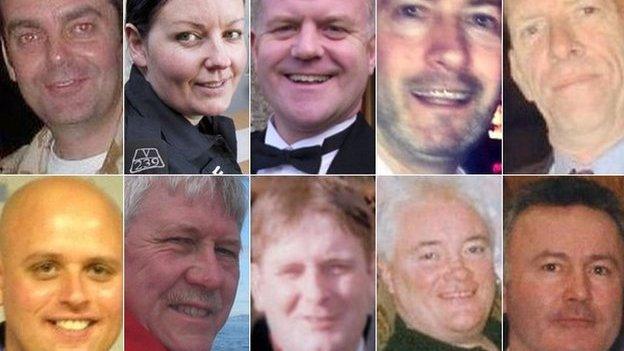
- Published8 April 2019
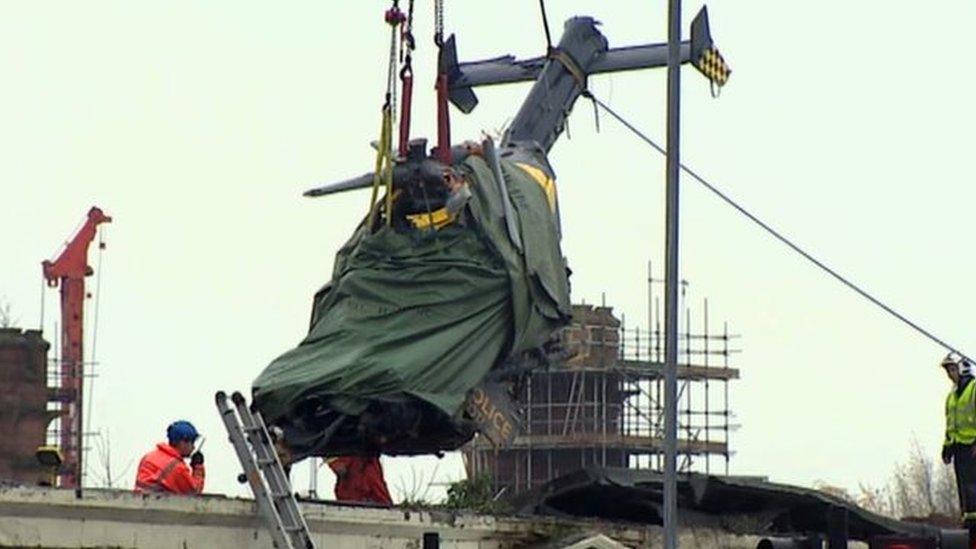
- Published3 April 2019
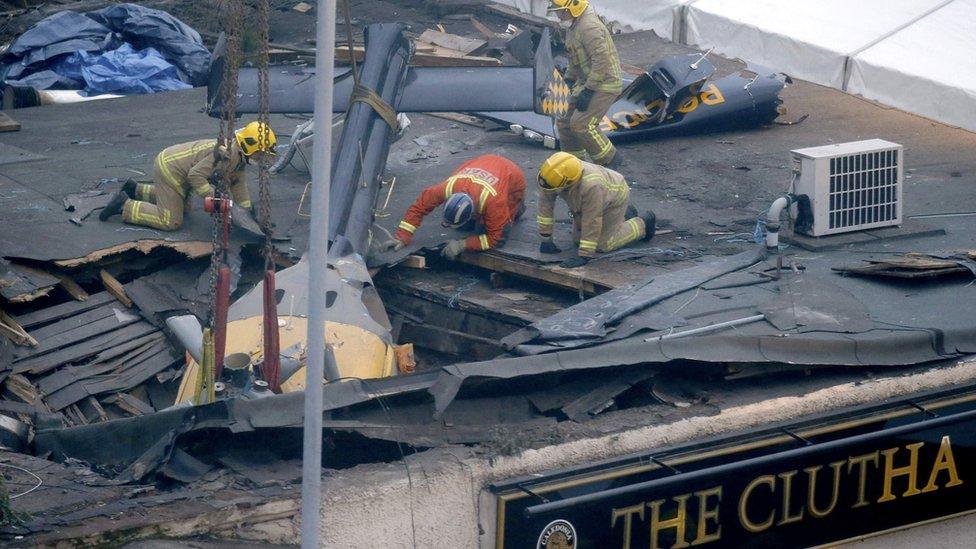
- Published23 April 2019
